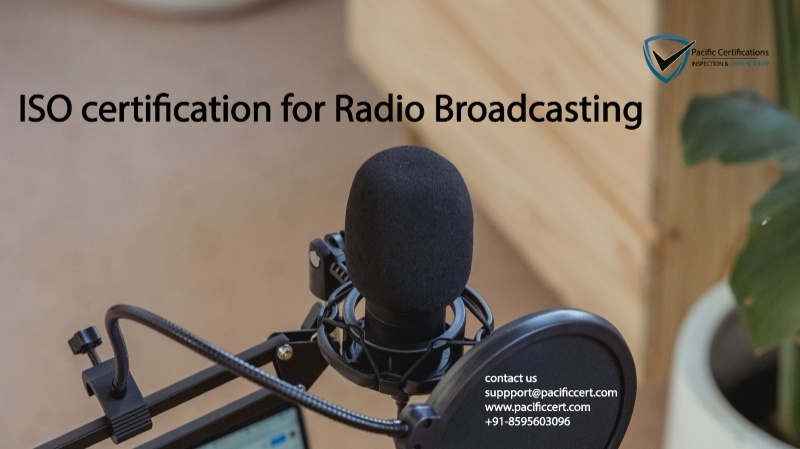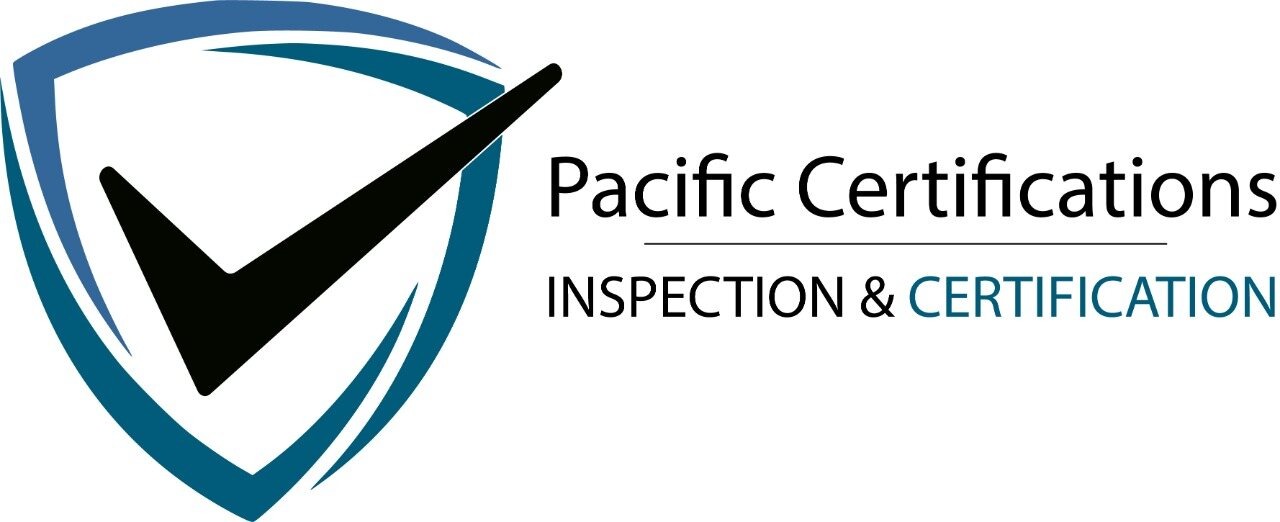ISO Certifications for Radio Broadcasting, Requirements and Benefits

Introduction
Radio broadcasting organizations operate in a time-critical and trust-driven environment where signal reliability, content integrity, regulatory compliance, data security, and uninterrupted transmission directly affect public confidence and advertiser relationships. Radio broadcasters manage a wide range of activities including live transmission, studio operations, content scheduling, advertising management, emergency broadcasting, transmission infrastructure maintenance, and digital streaming across terrestrial and online platforms.
With increasing convergence of traditional radio and digital broadcasting, tighter media regulations, higher cybersecurity risks, and growing dependence on uninterrupted transmission during emergencies, radio broadcasters face rising expectations for operational governance. ISO certifications provide a structured framework for radio broadcasting organizations to standardize operations, protect broadcast systems and content, ensure continuity of transmission, and demonstrate credibility to regulators, advertisers, and partners.
ISO certifications empower radio broadcasting with robust standards for quality, security, and resilience, streamlining compliance while amplifying listener trust and operational excellence.
Quick Summary
ISO certifications provide radio broadcasting organizations with internationally recognized frameworks to manage broadcast quality through ISO 9001, information security through ISO/IEC 27001, privacy protection through ISO/IEC 27701, business continuity through ISO 22301, IT service reliability through ISO/IEC 20000-1, asset management through ISO 55001, occupational health and safety through ISO 45001, and environmental responsibility through ISO 14001. These certifications strengthen transmission reliability, regulatory readiness, and operational resilience.
For ISO certification support, contact [email protected]
Applicable ISO Standards for Radio Broadcasting
Below are the most relevant ISO standards applicable to radio stations, broadcasting networks, community radio operators, and digital radio service providers:
ISO 9001:2015 – Quality Management Systems
ISO 9001 helps radio broadcasters standardize programming schedules, transmission procedures, advertising insertion, content review, and listener feedback handling, ensuring consistent service quality across all broadcast hours.
ISO/IEC 27001:2022 – Information Security Management Systems
Radio broadcasters increasingly rely on digital systems for automation, streaming, advertising, and archives. ISO/IEC 27001 provides a structured framework to protect broadcast systems, digital content, and operational data from cyber threats and unauthorized access.
ISO/IEC 27701:2019 – Privacy Information Management Systems
ISO/IEC 27701 strengthens governance over personal data related to listeners, advertisers, presenters, and employees, including call-in data, competition entries, and digital engagement records.
ISO 22301:2019 – Business Continuity Management Systems
Radio services are critical during emergencies and public announcements. ISO 22301 ensures continuity of transmission during power failures, system outages, cyber incidents, or natural disasters.
ISO 55001:2014 – Asset Management Systems
Radio broadcasting relies on high-value assets such as transmitters, antennas, studio equipment, backup power systems, and transmission towers. ISO 55001 supports lifecycle management and performance optimization of these assets.
Click here to find out more applicable standards to your industry
What are the Requirements of ISO Certifications for Radio Broadcasting?
Radio broadcasting organizations seeking ISO certification must establish and maintain documented policies, procedures, and records aligned with each applicable ISO standard. Key requirements include the following:
ISO 9001:2015 – Quality Management System
Define standardized processes for programming, transmission, and advertising
Establish quality objectives linked to uptime, signal clarity, and compliance
Implement document and record control for broadcast policies and schedules
Monitor transmission errors, complaints, and corrective actions
Drive continual improvement across broadcasting operations
ISO/IEC 27001:2022 – Information Security Management System
Identify and classify broadcast systems, content archives, and digital assets
Conduct information security risk assessments and treatment planning
Implement access control, encryption, and secure authentication
Establish incident detection and cyber-response procedures
Monitor and review ISMS effectiveness
ISO/IEC 27701:2019 – Privacy Information Management System
Define roles as personal data controller and processor
Establish lawful bases for listener and advertiser data processing
Implement consent, retention, and data minimization controls
Manage data subject access and correction requests
Maintain privacy risk assessments and breach response plans
ISO 22301:2019 – Business Continuity Management System
Identify critical broadcast and transmission services
Conduct business impact analysis for service disruptions
Develop transmission continuity and disaster recovery plans
Test backup studios and transmission systems regularly
Train staff on emergency broadcasting procedures
ISO 55001:2014 – Asset Management System
Establish an asset management policy for broadcast infrastructure
Identify and document critical studio and transmission assets
Assess asset risks, performance, and lifecycle costs
Implement preventive maintenance and renewal planning
Monitor asset performance and improvement actions
Tip:Start by mapping one complete broadcast lifecycle—from content creation and scheduling to live transmission, emergency override, archiving, and digital streaming—against ISO requirements to identify resilience and control gaps early.
For further information on how we can assist your radio broadcasting organization with ISO certifications, contact us at [email protected]
What are the Benefits of ISO Certifications for Radio Broadcasting?
ISO certifications are suitable for commercial radio stations, public broadcasters, and community radio networks. Key benefits include:
Greater reliability of live and scheduled broadcasts, reducing downtime and interruptions.
Stronger protection of broadcast systems and digital content, minimizing cyber risks.
Improved continuity of transmission during emergencies, supporting public safety.
Better governance of transmission infrastructure and assets, extending equipment life.
Higher confidence from regulators and advertisers, supporting licensing and revenue.
Improved safety management for studio and field staff, reducing workplace incidents.
Clear accountability across programming, technical, and IT teams, improving coordination.
Improved readiness for audits and regulatory inspections, strengthening compliance.
Radio broadcasting continues to evolve as traditional FM/AM services integrate with digital streaming, mobile apps, and smart-device platforms. Industry analysis indicates that global radio advertising revenues are expected to exceed USD 40 billion annually in the next few years, while digital radio and online audio consumption continue to grow steadily.
At the same time, regulators are placing stronger emphasis on broadcast resilience, cybersecurity, and emergency communication capabilities. Radio broadcasters operating under certified quality, information security, continuity, and asset management systems report fewer transmission failures, faster recovery during outages, and stronger regulatory confidence.
In upcoming years, ISO-aligned governance is expected to be a baseline expectation for professional radio broadcasting organizations.
How Pacific Certifications Can Help?
Pacific Certifications, accredited by ABIS, acts as an independent certification body for radio broadcasting organizations by conducting impartial audits against applicable ISO standards. Our role is to objectively assess whether documented management systems and broadcasting operations conform to international ISO requirements, based strictly on verifiable evidence and records.
We support radio broadcasters through:
Independent certification audits conducted in accordance with ISO/IEC 17021
Practical assessment of real broadcast, transmission, and IT workflows
Clear audit reporting reflecting conformity status and certification decisions
Internationally recognized ISO certification upon successful compliance
Ongoing surveillance and recertification audits
Contact Us
If you need support with ISO certification for your radio broadcasting operations, contact us at [email protected] or +91-8595603096.
Author: Ashish
Read more: Pacific Blogs

